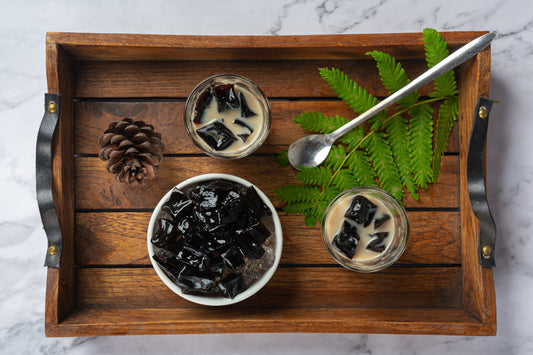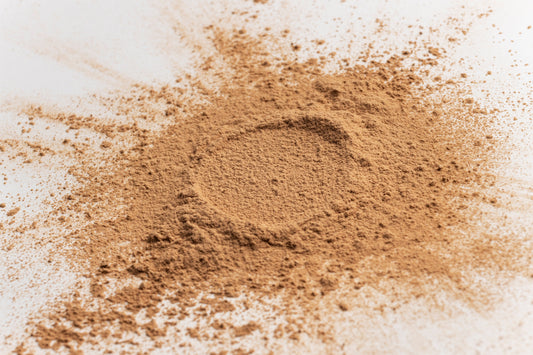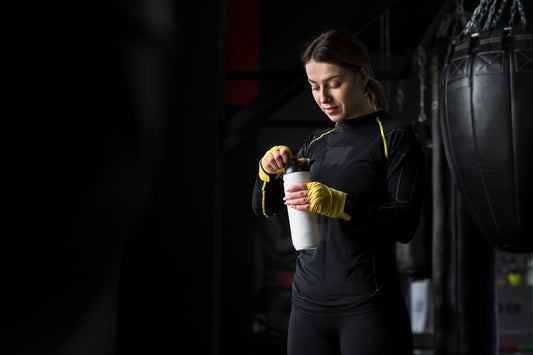
Creatine Myths You Should Stop Believing
Introduction:
Creatine, creatine, creatine..... but what is Creatine? Creatine is one of the most known and talked-about supplements in the fitness world. Creatine is also one of the most misunderstood supplements in the fitness world. One more thing that creatine is also one of the most researched and backed by experts formulations in the fitness world. But it still comes with a long list of doubts and fears.
Myths like:
-
Creatine leads to hair loss.
-
It damages our kidneys.
-
Creatine leads to dehydration.
-
Creatine is only for bodybuilders.
In this blog, we will break down major creatine myths people still have and understand what science actually says. If you’re using creatine or thinking of it, this guide will give you the clarity you need.
Creatine Causes Hair Loss or Baldness:
Many people believe that creatine leads to hair loss, but this fear is based on misunderstanding. It all started with a 2009 study in which rugby players showed a temporary increase in DHT, a hormone linked to male pattern baldness. An increase in DHT can not automatically lead to hair loss, especially if you do not genetically suffer from that. Also, this study was never studied again, and no one in the study actually lost hair. After this study, no study now can reflect that creatine can lead to hair loss or hair thinning. Healthy people considered creatine as safe for performance and appearance.
Good to Know:
-
Creatine doesn’t cause follicle damage.
-
No participants in the study reported actual hair loss.
-
Hair loss is based on genetics, not on supplements.
In the scientific reviews, no one having loss of hair or baldness was consuming creatine long-term.
Creatine Damages Our Kidneys:
In most of the people this one is the most common problem, but actually this is not true. And the reason behind this confusion is creatine can slightly increase the level of creatinine in the blood, which causes doctors to check kidney functions. Those who take creatine regularly and have a high level of creatinine do not have kidney problems. For a long time, most of the studies have shown that creatine is not the cause of the kidney issue. If you already have some issue with your kidneys and want to start creatine, then it's advisable to go to any healthcare professional and take their advice before starting creatine.
Things to Know:
-
Creatine raises creatinine levels but not kidney issues.
-
Healthy kidneys can process creatine without issues.
-
Over 20 years of research show that there is no direct kidney damage.
Healthy people have no issue with creatine, but those who already suffer from kidney issues can blame it. There is not any proven result that creatine can cause kidney health.
Creatine Causes Water Retention or Bloating:
Yes, creatine makes your muscles store more water, which is what you want. This isn't the same as the full, swollen feeling you get from eating junk food high in salt. Creatine helps your muscles stay hydrated and work better by pulling water into them. At first, it can make you gain a little weight (1–2 kg), but it's lean water weight, not fat. If you drink enough water and take the right amount, you probably won't get bloated. In fact, muscle hydration improves strength, recovery, and fullness.
Keep in Mind:
-
Water retention occurs within the muscles rather than beneath the skin.
-
It makes muscles appear more defined and fuller.
-
Consume plenty of water to avoid feeling bloated.
-
When using micronised creatine as directed, bloating is uncommon.
You Need to Load Creatine for It to Work:
Most of the people who go to the gym daily think that you must go through the loading phase, which means taking 20g of creatine daily for a week to see appropriate and faster results. But this method works every time and is not necessary. You can simply take a standard 3–5g dose daily, and it will gradually saturate your muscles within 2–3 weeks. This can give you the same result after a few days without the risk of bloating, stomach discomfort, or wasting excess creatine. The slow and steady method is easier and safer for nearly all the people.
Quick Truths:
-
Loading gives faster results, but not required every time.
-
Daily 3–5g intake works well for long periods.
-
Skipping loading means lower risk of bloating, cramps or stomach issues.
-
Consistency is more important than quantity.
Creatine is Only for Bodybuilders or Athletes:
Creatine is not just for the bodybuilder or those who have six-pack abs. But in reality, creatine helps anyone who is fitness-focused and going to the gym regularly, including beginners, women, and even older adults. It helps increase energy, improves strength, boosts recovery, and even supports brain function and overall performance. Creatine helps to build and maintain muscle without the need to lift 100 kg but just needs to be consistent. Creatine can help you in any stage of the fitness journey.
What Science Says:
-
For both males and females of all age groups.
-
Support strength, stamina, and better recovery.
-
Also supports brain performance and muscle protection in aged people.
-
Great for beginners starting their fitness journey.
Conclusion:
Creatine is one of the most researched, safest, and effective supplements available, but the wrong information, like fallacies, frequently prevents all of us from utilising it securely. The actual truth about creatine is that it is not the cause of hair fall and is truly safe for your kidneys. Creatine also supports overall well-being, faster recovery, and maintaining or building muscle.
If you are really serious about your fitness journey, then don't focus on myths because they are actually myths. Always choose clean, science-backed formulations like Hanley Healthcare.








